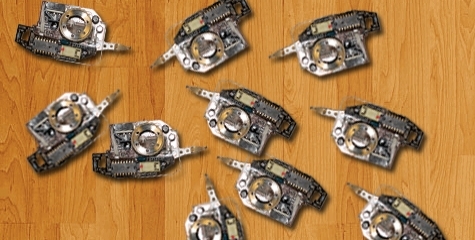Provide up to 2 possible drivers or triggers of HIGH importance. Click on HELP to see examples:
|
|
please describe
Driver / Trigger 1
|
please describe
Driver / Trigger 2
|
|
Technological/Scientific
|
Accessibility of new ICT technologies enabling machine-controlled operation of the ocean power stations, production plants etc. (e.g. intelligent autonomous robotic devices and machines).
|
New materials suitable for construction of underwater and surface facilities.
|
|
Economic
|
Need for energy from alternative sources (solar and wind power plants)
|
Need for new resources of raw materials (located on shelf and ocean bed).
Need of new locations suitable for industrial production (without expensive rent and ecological restrictions).
|
|
Environmental
|
Strong ecological restrictions on industrial production and energy production on dry land.
|
|
|
Political
|
Competition among states for ocean resources, especially raw materials.
|
|

.png)
